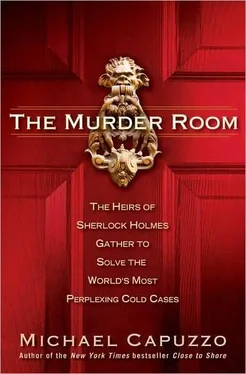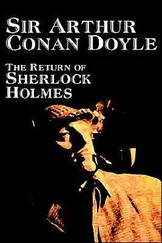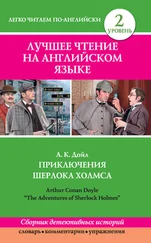“She’s calling you and continuing to call you to shape you and control you, so what we want to do is take the power away from her and regain it ourselves. She’s manipulating you to gain information because information is power and to a psychopath it’s everything. The moral of the story is, limit your sympathy and chats with Leisha Hamilton because she’s playing you like a violin and you can’t afford it, nor can the case.”
Dunn blinked and swallowed. “I didn’t know what else to do-”
Walter cut him off. “Not a problem, Jim. You’re a grieving father. It’s not an issue of laying blame, it’s an issue of trying to blunt her aggression. We need the control instead of giving it to her. And we are just signaling by our meeting that we are taking control.”
Dunn nodded.
Walter saw a new color in Dunn’s face, heard emotional depth in his voice. He still seems downtrodden, Walter thought. He needs to feel empowered. Walter feared police had been hard on Dunn about his son’s lifestyle, which included dropping out of high school and minor drug possession. Dunn seemed to be struggling with shame.
“Jim, I know you’ve told me Scott had some issues, and had not yet lived the life you had dreamed for him,” Walter said.
Dunn nodded gravely.
Walter waved his cigarette impatiently, as if Dunn wasn’t getting the point.
“Look, Jim, Scott was in his early twenties, and sometimes kids do foolish things and get involved in issues that are high-risk. And sometimes those errors in judgment result in dastardly deeds. It would appear that Scott’s worst crime, so to speak, was judging the wrong person, and sleeping with the wrong person, and forming an alliance with the wrong person.”
“I know my son wasn’t perfect, but I was proud of his progress,” Dunn said in defense of his son.
“That’s exactly my point, Jim. Many times what young people will do if they feel they have failed their own class or standards is they will regress back to a lower class or group because the pressure for performance isn’t as great,” the profiler continued. “Then across time those who have any substance in them at all will repair themselves, pull themselves back up to the expected standard, and join their own class. I know that sounds elitist but that’s just the way it is.”
“I was excited for Scott because he was really turning things around,” said Dunn.
Walter nodded. “He’s staying away from drugs, doing well on his job. And while he’s screwing his brains out with Leisha Hamilton, as twentysomethings are wont to do, he’s found a better thing, the real thing, in Jessica. He’s working his way back to legitimate society. Then of course Leisha finds out she was going to be dumped and you don’t dump Leisha Hamilton, she dumps you. He had the bad fortune of forming an alliance with a violent psychopath. He’s not the first. They don’t call it ‘psychopathic charm’ for nothing.”
Dunn sighed.
“Jim, we’re not just solving a murder. Scott was cut short of his ability to rehabilitate himself and be honorable and productive. What we’re doing-part of the ethic of being a father-is to take up that challenge for him and make a strike for decency.”
“What do we do next?” Dunn’s eyes were fastened on the thin man.
“The Lubbock Police Department must call me and request my help. The Vidocq Society does not become involved in a case unless it is invited in with full cooperation by the police department. Until that happens, all we’ve done is have a conversation.”
“I’ll call them right away. They’ll understand,” Dunn said passionately. “They’ll have to.”
“Then it’s up to the police to call me,” Walter said, “or we have wasted our time. And another thing.”
Dunn appeared dazed. He was feeling relieved, emboldened, optimistic, and overwhelmed all at once.
The thin man’s face sharpened in the sallow light of the room.
“The Vidocq Society will help you as best we can. As for myself, I’m not going to let that bitch get away with murder.”
CHAPTER 33. MURDER IN THE CATHEDRAL
The week before Christmas a little blond girl, dead for thirty years, materialized on a screen in the City Tavern. The tiny figure, bruised and beaten, ashen face drained of life, shimmered in the midday sunlight in the front of the room. Fleisher started trembling. He looked like he’d seen a ghost.
That morning in the Strawbridge amp; Clothier department store, he’d seen Ebenezer Scrooge quaver before the Ghost of Christmas Past in the store’s annual portrayal of Charles Dickens’s A Christmas Carol. But the slain little girl before him now, nine-year-old Carol Ann Dougherty, was not a figment of anyone’s imagination, and Fleisher was not trembling in fear. He was shaking in fury.
Dougherty’s murder was one of the saddest and most disturbing images of his childhood. Carol Ann had been found raped and murdered in St. Mark’s Church in Bristol, Pennsylvania, a Philadelphia suburb not far from Fleisher’s house, in October 1962. A fifth-grader at the parish school, she had been killed in an era when police and the public were not fully aware of the perverse sexual needs of many priests, or the long practice in the Roman Catholic Church of allowing pedophile priests, cloaked wolves, to prey on victims, simply transferring them from flock to vulnerable flock. Carol’s killer had never been brought to justice.
Now on the morning of December 17, 1992, as the Vidocq Society began its examination of the Choir Loft Murder, Fleisher converted his anger into a desire to fix the past. Thirty years, one month, and twenty-five days after the murder, Bristol police chief Frank Peranteau and detective Randy Moore stood before the society to present the case. Peranteau had said, “We need all the help we can get.” A series of articles in the Bucks County Courier Times by reporter J. D. Mullane had recently reawakened interest in the county’s coldest case. The county district attorney had impaneled a grand jury to investigate it. Chief Peranteau had inherited the case from Chief Vincent Faragalli, retired now for thirteen years, who had obsessed over it. Faragalli kept Carol’s picture in his wallet.
The case was always “ just out of reach,” investigators said.
Now the screen in the Long Room showed Dougherty lying on her back in the choir loft the day she was raped and murdered. It was one of those cases where the waiters and waitresses looked away as they carried silver cloches in and out of the Murder Room.
Light from a stained-glass window revealed her blond hair mussed and untied. The red plastic barrette that had held it in a ponytail was lying nearby on the landing. One of her feet was bare. The shoe was tossed to the side; the sock was stuffed in her mouth, gagging her. Carol’s small right arm was wrenched behind her back. Her left hand was straight out, clutching three dark hairs, a man’s pubic hairs, which she had grabbed during her fatal struggle. She had been forcibly raped; semen was found at the scene. The grooves on her neck, from the rope that strangled her to death, appeared to match the pattern of a cincture, the long, ropelike cord tied around the waist of a priest’s alb, the full-length Roman tunic. To Roman Catholics, the cincture was a symbol of the priest’s chastity and purity.
One of the few surviving original investigators had told the Courier Times that it broke his heart. “I really took that case to heart because I had a daughter the same age, nine years old. You saw that little girl laying in that choir loft, and you just wanted to cry.”
Fleisher felt a chill displace his holiday cheer. As he walked the city garlanded in holiday lights that morning, Fleisher had allowed himself a moment of pride in the Vidocq Society. Vidocq agents were working for justice wherever need took them. Richard Walter was in West Texas that morning, consulting with police on the Dunn case. Fleisher smiled, imagining their sardonic dark knight flashing his rapier wit at the suspected killers of Scott Dunn, the police-whomever got in his way. U.S. Customs special agent Joe O’Kane, the Vidocq case manager, was fielding heaps of letters signed by grieving and aggrieved men and women across America. Word was out that a band of pro bono detectives in the City of Brotherly Love was standing for truth in cold murders beyond the grasp of police.
Читать дальше












